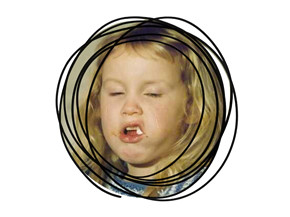| Obligatory picture of extraneous books. |
When I was a teenager, I was obsessed with Sylvia Plath. On my list of adolescent preoccupations, she ranked second only to Michael Jackson. I devoured everything Plath-related: books about her; books by her; books by her husband; pictures; poetry; recordings of poetry; ‘Lady Lazarus’ and ‘Mad Girl's Love Song’ on infinite repeat.
'The Bell Jar' was (and still is one of) my absolute favourite book(s). I've no idea how many times I must have read about her cadaver fascination, or her (somewhat disastrous) sexual exploits, or indeed her descent into darkness, but we were pretty well acquainted, me and Esther G.
When we were asked to choose a book for personal study in Higher English, 'The Bell Jar' was straight on my desk with piles of articles analysing its imagery and themes. When we were required to compare and contrast two literary works for our Advanced Higher class, there it was again with 'The Trick is to Keep Breathing' its new best friend. I remember being indignant at the time because my English teacher had never heard of Sylvia Plath (what kind of university did he go to?!). In hindsight, I'm mostly just indignant that no one in the English department was concerned* by a teenage girl's fascination with suicidal women and mental ill-health.
It was its darkness that attracted me most to 'The Bell Jar' at the time. When you're a teenager, you think that no one else in the world has ever felt what you've felt, or lived through what you're living through, despite much evidence to the contrary. When you live in the early 60s (long before antidepressants were commonplace and therapy so much the done thing), you believe that no one else has ever experienced the darkness you're experiencing because there is no evidence to the contrary. What I found in Esther Greenwood (and, actually, in Sylvia Plath) was a character whose feelings not only echoed some of my own - who shared some of the hopelessness that I felt - but also a character who gave voice to that sense of going through something alien and utterly alone.
At the time, I admired Sylvia Plath because she used her creative talents to fight and express her demons so beautifully. I admired Esther Greenwood because she, too, seemed to fight them long and hard. And though the ending is open and some will always maintain that Esther dies, I like to imagine that her battle ended more happily than Plath's.
These days, I realise that these two women - one real, the other not - deserve admiration for more than "simply" fighting these wars. They deserve admiration for being women who refused to surrender or conform. Read Plath's poetry and you find recurring themes of oppression and objectification; evidence of a woman struggling with the pressure to behave in a way that social class and society had pre-ordained. Read the parallel story of Esther Greenwood's life and you find a woman who appears to have it all (an internship with a well-known magazine and invites to some of the best parties in town, what more could any woman want?!), yet who wants something else: freedom and the ability to figure out life for herself.
"Women and men are equal and entitled to the same opportunities," Plath seems to write. Bold thoughts to put on a page at the time. Bold thoughts which, in some respects, are as challenging and relevant to women today.
When Faber released its 50th anniversary cover of 'The Bell Jar' earlier this year, there was an outcry amongst book reviewers and social media users alike. "It's flippant and trivialising!" they cried. And yes, well, it is.. but I sort of like it. (Shh, don't tell!)
I like it, in part, simply because I associate Esther Greenwood with fashion and flirtation. I like it because it captures something of her sexual empowerment, though admittedly it's a little tongue-in-cheek.
But I like it, too, because it attracts a different kind of readership; because I don't believe that 'The Bell Jar' was written only for the deep-thinking college girl that it's become associated with, but rather as a battle cry for every ordinary average kind of girl. And I like it most of all because I can't help but imagine some consumer of 'Mommy Porn' picking it up mistakenly, finding herself confronted by Esther Greenwood, a woman who is far from submissive, but a fighter, empowering herself (and through it, many others) to challenge, to create and to heal.
Yesterday was World Book Day. Today is International Women's Day.
What's your favourite book? And which women - literary or otherwise - inspire you?
What's your favourite book? And which women - literary or otherwise - inspire you?
(*As a side note, I was - and still am - quite fond of my English teachers and don't blame them for not asking questions. I went to a school of 1200 pupils - no one had time to worry about the well-behaved girls.)







0 Comments